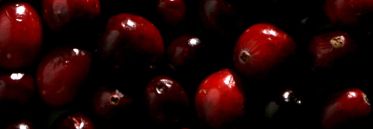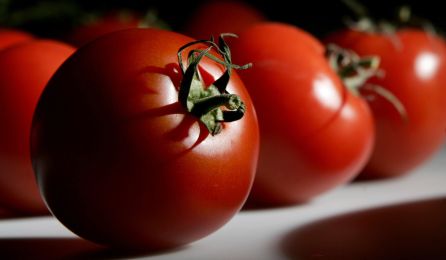|
|||||
|
|||||||
|
    An initiative of :Stichting Food-Info
|
| Food-Info.net> Topics > Food components > Food colours > Natural food colours Natural Food ColoursAnthocyanins Anthocyanins are water soluble pigments responsible for the attractive red, purple and blue colours of many flowers, fruits and vegetables. They are sensitive to pH change, being reddest in strongly acidic conditions and become more blue as the pH rises. Used in drinks, jams and sugar confectionery.

More on anthocyanins Beetroot The colour of beetroot is water soluble and has limited stability when exposed to light, heat and oxygen. It is particularly suited to frozen, dried and short shelf-life products, such as ice creams and yoghurt. More on beetroot colours Cochineal The water soluble pigment carminic acid (carmine) is derived from the female cochineal insect. Introduced into Europe via the Aztecs it has the advantage of being stable when exposed to heat, light and oxygen. Uses include alcoholic beverages and processed meat products. More on cochineal Chlorophyll Chlorophyll is the most widely distributed natural plant pigment, present in all green leafy vegetables. It is a green, oil soluble colour. Chlorophyllins are water soluble and relatively stable when exposed to heat and light. Uses include sugar confectionery and dairy products. More on chlorophyll Carotenoids Over 400 different carotenoids have been identified in red/orange/yellow fruits, vegetables and plants. Nature produces carotenoids at the rate of 1000 million tons per year. Most are oil soluble, heat stable and are not affected by pH change. The uses of carotenoids include margarine, dairy products and soft drinks. More on carotenoids 
Curcumin Turmeric is a well known spice, used widely in cookery. Its pigment, curcumin, is oil soluble and tends to fade in light, but has good heat stability. It gives a lemon yellow shade in food systems. Its applications include curry, soups and confectionery. More on curcumin Riboflavin Riboflavin, Vitamin B2, is used for fortification and colouring. It is water soluble, heat stable and is used in dairy products, cereals and dessert mixes Carbon and metals Vegetable carbon black is a heat and light insoluble pigment, used primarily in sugar confectionery. Metals, such as gold, silver and aluminium are used for surface colouring, mainly in confectionary. For more information on natural colours : http://www.natcol.org |
|
| ||
| Food-Info.net is an initiative of Stichting Food-Info, The Netherlands | ||||||